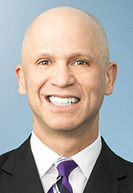Subscriber Benefit
As a subscriber you can listen to articles at work, in the car, or while you work out. Subscribe Now
Business valuation experts have long struggled with how to value S corporations in divorce cases. In 1958, Congress established S corporations under the Internal Revenue Code. S corporations pay a single tax at the individual taxpayer level, as opposed to C corporations paying taxes at both the corporate and individual level. Many business valuation experts have tax affected S corporations (meaning discounted for taxes that would have been paid if the S corporation were a C corporation) in order to align valuations of S corporations with those of C corporations. The purpose of this tax affecting is to make business valuations virtually identical regardless of the corporate structure selected. Yet that practice is not routinely applied by the United States Tax Court. See, e.g., Gross v. Commissioner, T.C. Memo 1999-254, aff’d, 272 F.3d 333 (6th Cir. 2001). A recent case from a United States district court has garnered much notoriety and created major waves. This publicity may revive this important conceptual topic and signify broader acceptance of S corporation tax affecting in business valuations.
In Kress v. United States, No. 16-C-795, 2019 WL 2455300 (E.D. Wis. March 25, 2019), taxpayers were shareholders in a family-owned S corporation who brought a tax refund action against the United States to recover an overpayment of gift taxes and interest related to their gifts of minority-interest stock in the corporation to their children and grandchildren. The taxpayers’ two experts and the government’s expert each prepared valuation reports using different valuation approaches, methods and discounts that resulted in three proposed valuations. All three experts tax affected, or applied C corporation-level taxes, to the corporation to more closely compare the S corporation to C corporations. But the government’s expert then assessed an S corporation premium to account for the tax advantages accorded S corporations. The taxpayers’ two experts did not assess an S corporation premium. The federal district court, in giving less weight to the government’s expert’s conclusion, determined that he failed to consider appropriate comparable companies under the market approach and the impact of the economic recession, improperly treated non-operating assets, and applied an overly low discount for lack of marketability. Conversely, the court found that one of the taxpayers’ two experts provided the soundest valuation methodology (which methodology did not include an S corporation premium) and adopted his valuation.
Given that the Internal Revenue Service typically takes the position that tax affecting is not appropriate for S corporations, Kress is notable not only for its holding but also for the fact that the government’s expert tax affected the S corporation (albeit with application of a somewhat countervailing S corporation premium). The amount of publicity arising from the opinion is staggering, with only a few commentators saying the opinion is not that significant since there was not a dispute among the three experts as to tax affecting the S corporation income. Notably, Kress is a gift tax case and not a divorce case. So what, if any, importance does the opinion have in family law cases? To determine the vitality of the S corporation fiction, a brief review of a seminal set of divorce opinions is in order.
The Massachusetts trilogy of Bernier v. Bernier is worthy of consideration. In 2001, a Massachusetts trial court adopted the husband’s valuation expert’s report, which tax affected the husband’s interest in an S corporation. On appeal, the Massachusetts Supreme Judicial Court noted the distinction between the single taxation of C corporations and the double taxation of S corporations and disagreed with the trial court’s application of Gross. The supreme court remanded with orders to apply the tax-affecting procedure set forth in Delaware Open MRI Radiology Associates v. Kessler, 898 A.2d 290 (Del. Ch. 2006). Bernier v. Bernier, 873 N.E.2d 216 (Mass. 2007). That procedure tax affected future cash flows at a lower level that recognized the full effect of a minority shareholder’s ability to receive cash dividends that were not subject to dividend taxes. On remand, the trial court rejected both experts’ new valuations and applied the adjusted tax rate used in Kessler. On appeal again, the Massachusetts Appeals Court determined that the wife’s valuation was consistent with the supreme court’s mandate, while the trial court’s and the husband’s valuation was not, and remanded. Bernier v. Bernier, 970 N.E.2d 363 (Mass. App. Ct. 2012). Bernier, despite tax affecting being applied by many valuation experts, has historically been viewed as a judicial outlier. With the advent of Kress, the debate among valuation experts is likely to be reinvigorated.
Kress is a material development in divorce valuation engagements. Despite its recency and use by all three experts of some form of S corporation tax affecting, a lively and continuous debate is certain to ensue as to both the use of S corporation tax affecting and S corporation premiums. Given that states use different standards of value, employ varying judicially approved valuation approaches and methodologies, and do not provide a bulk of judicial guidance as to business valuations in divorce cases, this discussion is not likely to end any time soon. But the fact that the S corporation fiction and tax impact differential with C corporations is back on the radar after a period of relative dormancy is a welcomed development that may lead to more guidance in this important and challenging area. It is virtually certain that the next chapter in S corporation divorce valuations will be a fascinating, significant and unpredictable ride with no shortage of unexpected twists and turns.•
__________
• Andrew Soshnick is a partner and trial lawyer at Faegre Baker Daniels LLP. Opinions expressed are those of the author.
Please enable JavaScript to view this content.
